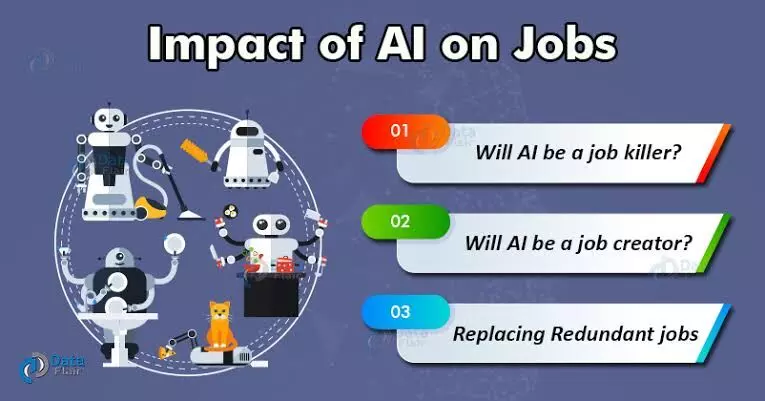Can Policymakers Counteract the Impact of A.I. on Millions of Jobs
As AI threatens to wipe out millions of jobs, researchers warn of severe inequality. Can policymakers intervene to mitigate the effects?;

Artificial Intelligence is known to enhance productivity and push growth of economies worldwide. The downside is that it is also responsible for wiping out millions of jobs and, thus, create a wider gap between the haves and the have-nots.
Researchers and analysts across the world are working hard to predict how AI is going to reshape the global economy. Their continued research in this direction reveals that more than 30% of jobs in advanced economies will be extinct while the figure is 24% and 18% for emerging and low-income economies, respectively. The research, conducted by the International Monetary Fund (IMF), warns that even though AI is a complementary tool that creates new jobs and new industries, it could still lead to severe inequality among the rank of employees, especially in countries that lack the infrastructure or skills required to harness the full potential of AI. The scenario, if left unattended, could eventually lead to greater inequality among nation-states, the research predicts.
In its blog, IMF writes, “Our research has already shown how AI is poised to reshape the global economy. It could endanger 33 percent of jobs in advanced economies, 24 percent in emerging economies, and 18 percent in low-income countries. But, on the brighter side, it also brings enormous potential to enhance the productivity of existing jobs for which AI can be a complementary tool and to create new jobs and even new industries.”
The data for this survey was drawn from IMF’s new AI Preparedness Index Dashboard, which checks the readiness of 174 countries in four main areas: - 1) Digital Infrastructure; 2) Human Capital and Labor Market Policies; 3) Innovation & Economic Integration; and 4) Regulation. The Index finds different countries at different stages of readiness vis-à-vis leveraging AI’s potential benefits.
The countries that can harness AI’s benefits well will see enhanced productivity and fresh opportunities of employment. The countries that fail to rise to the occasion will, obviously, fall behind in the long run.
So, what should be done to rectify this economic conundrum? Well, it is up to the policymakers to take a lead in this direction. Some of the areas in which policymakers can invest in selected fields of public interest, like social security, training new workers, and, most importantly, assign priority to AI integration with the traditional methods of working.
In another report, IMF states that owing to shift in the labor market, in the past decade, partially due to AI, higher-paying jobs would be more affected in advanced countries than in the middle-income or low-income countries. In fact, Asia-Pacific region is more at risk, owing to the fact that it is on a growth spree.
So, how can the policymakers address this threat of inequality from the AI? Effective social safety nets, Reskilling programs for affected workers and education & training to current workforce, are just two of the main paths to take if Asian-Pacific economies want to keep afloat in face of the tsunami called Artificial Intelligence.
(The writer is a Mortgage Specialist, Zonal Manager with Andromeda (India’s largest loan distributor) and occasional political commentator.)

